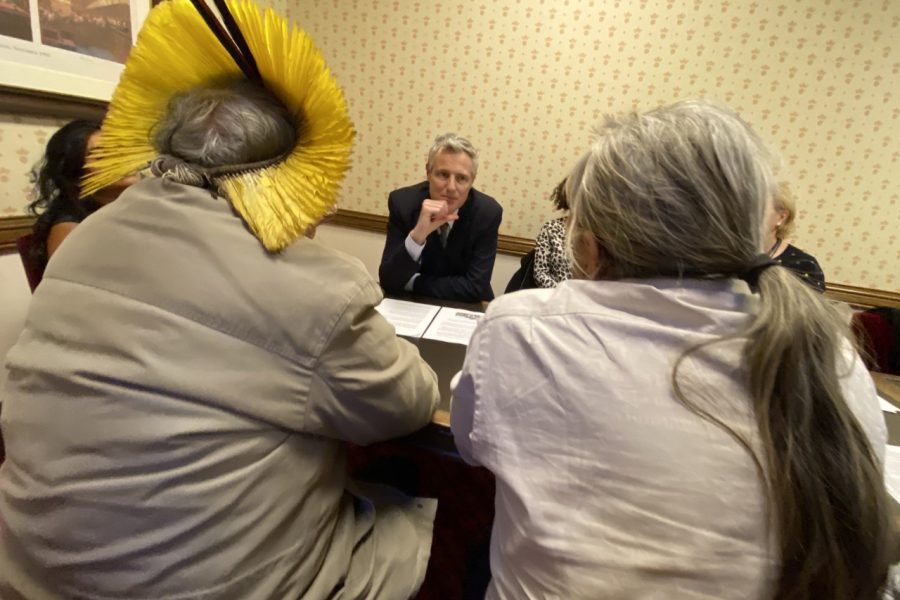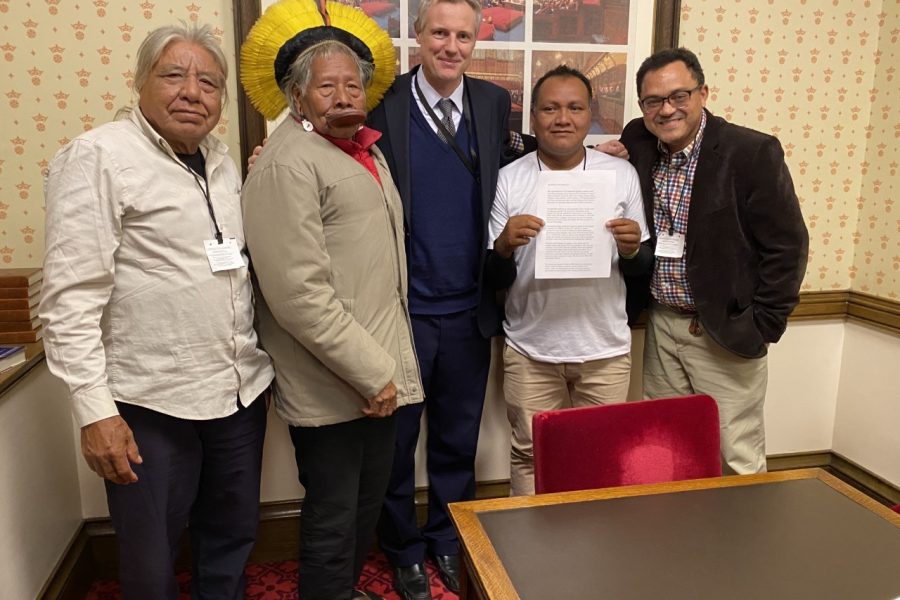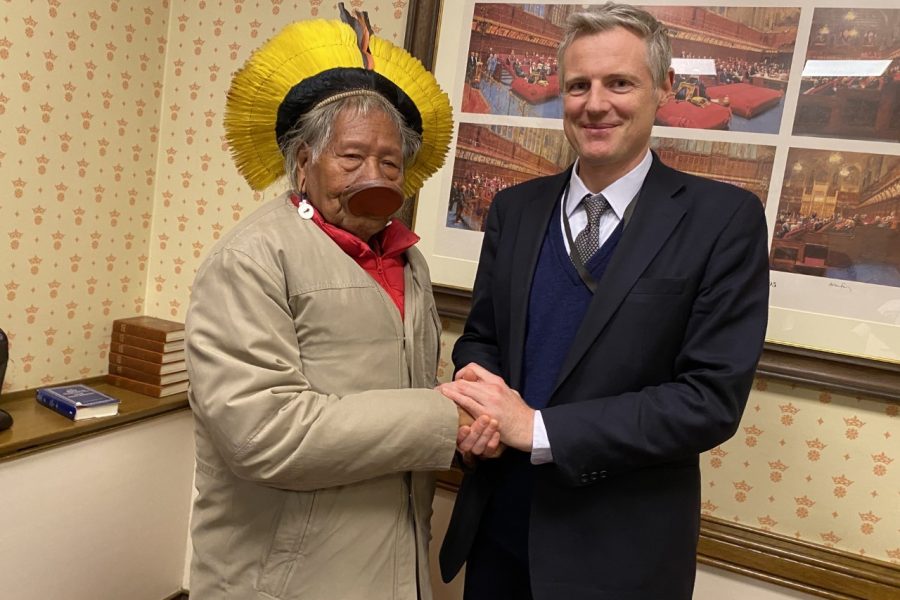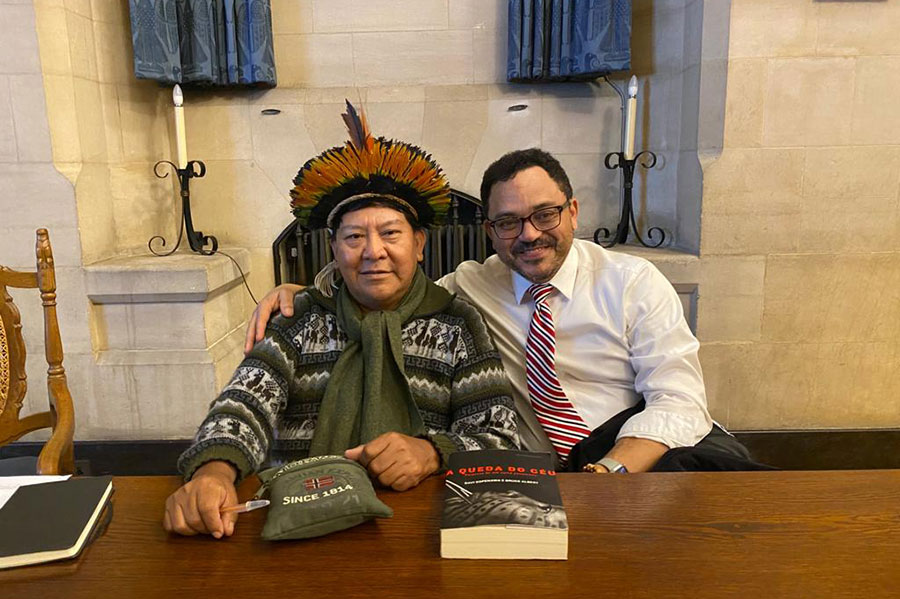
A Florida State University scholar co-hosted a colloquium that brought together indigenous leaders, politicians, NGOs, academics and other stakeholders to discuss solutions for major environmental and political problems in the Amazon region.
The colloquium, “Amazon: Rising Violence and Disturbing Trends,” took place Jan. 30-Feb. 2 at Oxford University in the United Kingdom. Marcos Colón, a postdoctoral scholar who leads the Portuguese program in the FSU Department of Modern Languages and Linguistics, co-hosted the colloquium and facilitated various events.

Leading intellectuals and active indigenous rights activists participated in the colloquium, which promoted the sharing and understanding of different perspectives while trying to decolonize scientific practices.
“The colloquium advanced new solutions and perspectives for the region and provided a platform for dialogue and brainstorming,” Colón said. “It really showcased the power of interdisciplinary conversations aimed toward building a greater, more sustainable future.”
Indigenous leaders participating in the event included Cacique Raoni Metuktire of the Kayapó tribe, indigenous leader and environmental activist who is a candidate for the 2020 Nobel Peace Prize and has dedicated his life to protecting the Amazon. At age 89, he traveled around the world to speak out against the spate of Amazonian fires that made headlines this past summer.
“I want for everyone to live in peace, without fighting, without conflict, without killing one another, this is what I want,” Metuktire said. “What is happening today, with this government, is that they are commanding us to destroy ourselves, commanding us to kill one another, we Indigenous people.”
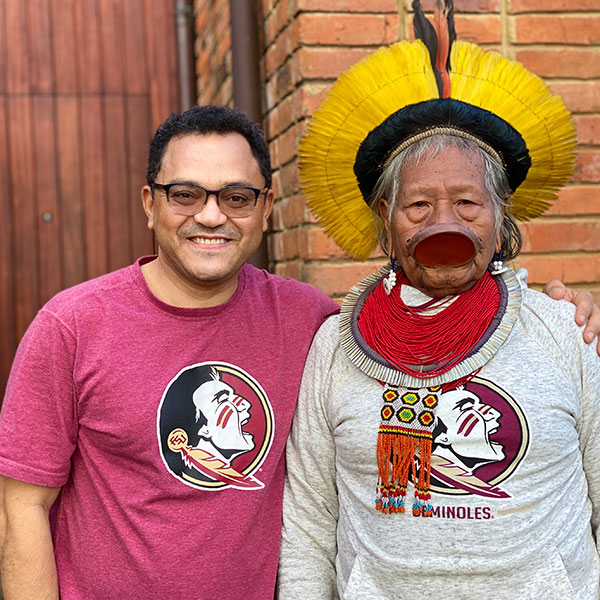
The indigenous leaders’ presence at Oxford among academics and politicians was significant because this event gave a platform for their voices and an unbiased search for solutions.
Davi Kopenawa, shaman and spokesman for the Yanomami people and author of the book “The Falling Sky,” spoke during the colloquium.
“They are letting us become sicker, invading our territory, dirtying our rivers, sicknesses, such as malaria, the flu, tuberculosis and others were brought from the city to indigenous lands,” Kopenawa said.
He discussed problems that indigenous groups face in the Amazon and explained the consequences of these ongoing situations of deforestation, death of indigenous and the threat to the future of the children.
In addition to debates, roundtables and presentations, the colloquium also drafted the “Oxford Letter for the Amazon” to demand that changes be taken in regard to policies governing the area.
Following the colloquium, Colón coordinated a meeting Feb. 5 between Zac Goldsmith, England’s Minister of State for the Environment and International Development and Raoni Metuktire, Megaron Txucarramãe and Bepró Metuktire, indigenous leaders from the Brazilian Amazon. The meeting took place in London at the British Parliament.
The meeting was called by Metuktike to denounce projects and violence against indigenous groups and to list the rights and demands of indigenous communities. The Piaraçu Manifesto was drafted in the Piaraçu village in January of 2020 by 45 indigenous people and 600 other participants. A copy of this manifesto was brought to England to provide the British government with a list of ways they can support the preservation of indigenous culture and land.
Colón witnessed the submission of the manifesto to Goldsmith, who provided his support and listened to the worries of the indigenous leaders. Goldsmith also assured that the demands of the manifesto would be carried to Prime Minister Boris Johnson himself.
For more information, visit https://amazonialatitude.com/international-colloquium-on-socio-environmental-politics/.





